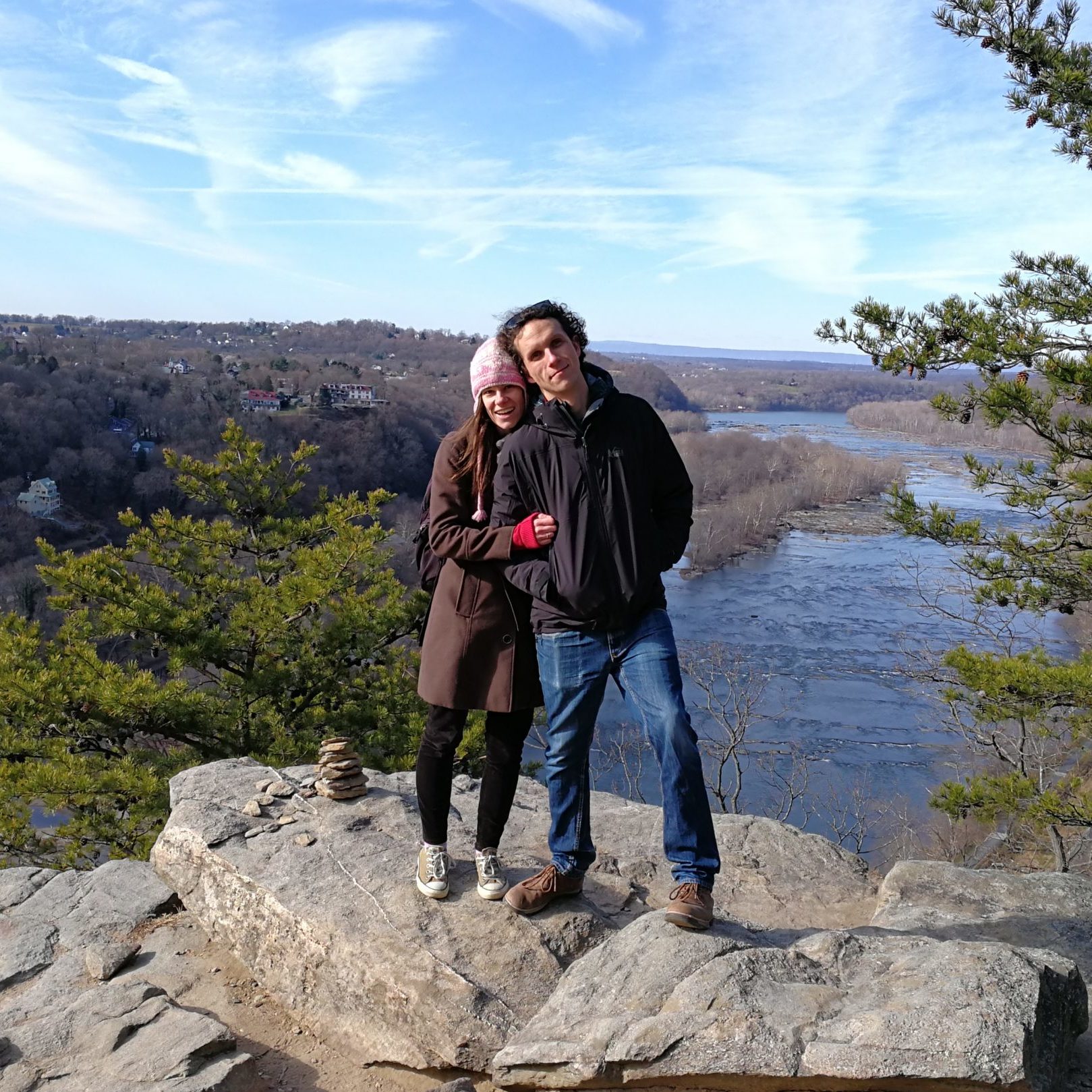Published July 14, 2020
Rebecca Walker, Ph.D., University of Maryland
How did you first get involved in PKD research?

Becca and her husband
Rebecca: I did my doctorate in Dr. Dominic Norris’ lab in Oxford, UK. His lab focuses on “cilia in development and disease,” and had recently worked on a mutant mouse that had left-right patterning defects. This mouse actually had a mutation in Polycystin-2 which caused polycystic kidney disease. Working on this mouse was the basis for my thesis and made me the pioneer of kidney research in Dr. Norris’ lab. This is where my love of kidneys and PKD flourished! Since then, I moved to America in search of more PKD research for my postdoc, and I found a home in Dr. Feng Qian’s lab in the Baltimore PKD center.
What are you working on currently?
Rebecca: The majority of my work centers on a model of ARPKD. We’re trying to understand what’s going on behind the scenes to make the kidney susceptible to cyst development and what Pkhd1, the gene involved in ARPKD, is doing. I work with cell lines to figure out how the mechanisms of the cell change when ARPKD genes are disrupted. I search deep down in the kidney tubules to find how structures have changed. I try to figure out connections between different players maintaining cell structure and function.
What would you like the patient community to know about your research?
Rebecca: The kidney is very complex! I bet patients come across this too, but many people don’t realize how many things the kidneys do or how important they are. Of course, patients know all too well how much the kidney is doing, or not doing. The kidney is complex and so is PKD. That makes it a more tempting puzzle to work on. There’s a lot we know about PKD, cyst development, the genes and proteins involved, but there’s also a lot we don’t know. Our job in the lab is to sit on the edge of what we don’t know, using what we do know as tools to cast our nets into the unknown, and hopefully bring something back.
Do you have a personal connection to PKD?
Rebecca: I don’t have a personal connection to PKD, but I do think that patient-scientist interactions are important. For scientists, we need to be reminded that someone cares about the work we’re doing. We often have long days with experiments that fail, negative results, or roadblocks—remembering that patients are hungry for our progress pushes us forward. I think patients may be encouraged to hear that PKD scientists have deep passion for PKD research and about the kidney. We wake up in the morning thinking about kidneys, some patients probably do too. We tirelessly drive forward to figure out the next part of the puzzle. In our lab, although we are focused on the tiny microscopic scale of genes and protein interactions, we try to remember that this research is more than just interesting. It has the potential to really help make people’s lives better.
What excites you most about this research?
Rebecca: I think our field is at an exciting point in making lots of discoveries. We’ve recently gained some great tools and knowledge, such as the structure of the Polycystin proteins. This hidden insight was something we’ve desired for a long time. Imagine working on something that you don’t really know the shape of. We can now model how the proteins fit together and we’re starting to figure out why certain mutations impact the function of the channel now that we can see which part they effect.
What are some of your personal interests outside of research?
Rebecca: My husband and I recently moved into a 100+-year-old house that is owned by our church. We’ve enjoyed being fixer-uppers and painters, getting some practical housework done! I enjoy teaching Sunday school and leading a weekly women’s group too. We also love to go walking (it’s even in the surname) and try to get out as much as possible. Check out Dr. Walkers’s grant and others funded by PKDF here!
The PKD Foundation is the largest private funder of PKD research in the U.S. Since 1982, we’ve invested over $50 million in more than 1,300 research, clinical and scientific grants, fellowships, and scientific meetings. Each year, the Foundation identifies and supports the work of scientists and researchers from around the world who look for ways to treat and eventually cure PKD. Our vision is to #endPKD. Donations fund necessary research that leads to more effective treatments and ultimately a cure for PKD.









Hi Dr. Walker,
Thank you for your drive and passion for PKD (ARPKD) research. The effects of ADPKD and ARPKD in families are devastating. I thank you for your dedication and determination to help us understand and find more treatments and ultimately a cure. Best, Jean Sommer